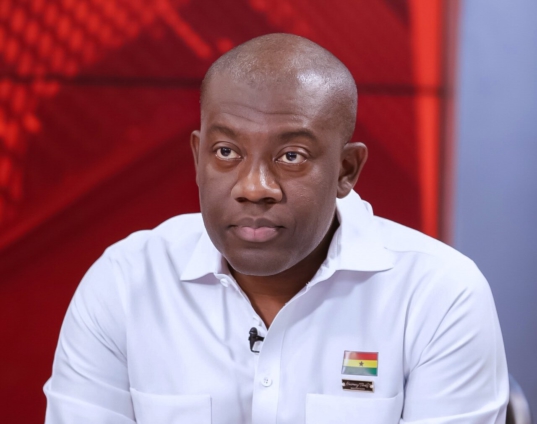Information Minister, Kojo Oppong Nkrumah has explained some key measures government intends to adopt to improve the economy beyond seeking economic support from the International Monetary Fund (IMF).
In an interview on The Probe, Sunday, the Minister outlined the Balance of Payment (BOP) support, domestic resource mobilisation and extensive collaboration with industries and other private sector players as the measures likely to improve the country’s economy.
According to him, this trio will help the government to better respond to the current economic crisis as the IMF engagement happens on the sidelines.
“BOP support which is only a limited window of support for a particular purpose. Domestic resource mobilisation ensuring that we are able to move from just about 12 percent of GDP that we are contributing so that my brother can get his allowance.
“A broader economic challenge that also requires a deeper collaboration with industries and other private sector players who have some capital to find more space to operate and as they operate and there is more productivity we get back into the national curtain,” he said.
Responding to why government will not scrap the E-levy even if the IMF provides economic support, Kojo Oppong Nkrumah said government needs “to mobilise some more domestic resources” to respond to the economic crisis. Hence, not prudent for the government to scrap the levy.
Meanwhile, the Ofoase Ayirebi lawmaker says government is likely to receive about $2 billion from the International Monetary Fund (IMF) after deliberations on a specific support package are concluded.
He stated that considering Ghana’s quota and macroeconomic data, it is possible for the country to get that money to help shore up its reserves.
“Already, you recall that the Finance Minister initially indicated that there were arrangements to get about $2 billion, out of which there is $1 billion available. Parliament has to approve for us to receive so that the cedi does not depreciate further.
“We have a shore up of our reserves to be able to meet the liquidity and debt servicing obligations even as our domestic measures will get better. You have the window to start talking to the Fund.
“Today [Sunday, July 3], I saw a document that said looking at Ghana’s quota and our macroeconomic data, we could get anything, maybe around $2 billion to help shore up what we are looking for,” he told host, Emefa Apawu.
Latest Stories
-
CHAN 2024Q: Ghana’s Black Galaxies held by Nigeria in first-leg tie
3 minutes -
Dr Nduom hopeful defunct GN bank will be restored under Mahama administration
37 minutes -
Bridget Bonnie celebrates NDC Victory, champions hope for women and youth
44 minutes -
Shamima Muslim urges youth to lead Ghana’s renewal at 18Plus4NDC anniversary
2 hours -
Akufo-Addo condemns post-election violence, blames NDC
2 hours -
DAMC, Free Food Company, to distribute 10,000 packs of food to street kids
3 hours -
Kwame Boafo Akuffo: Court ruling on re-collation flawed
3 hours -
Samuel Yaw Adusei: The strategist behind NDC’s electoral security in Ashanti region
4 hours -
I’m confident posterity will judge my performance well – Akufo-Addo
4 hours -
Syria’s minorities seek security as country charts new future
4 hours -
Prof. Nana Aba Appiah Amfo re-appointed as Vice-Chancellor of the University of Ghana
5 hours -
German police probe market attack security and warnings
5 hours -
Grief and anger in Magdeburg after Christmas market attack
5 hours -
Baltasar Coin becomes first Ghanaian meme coin to hit DEX Screener at $100K market cap
5 hours -
EC blames re-collation of disputed results on widespread lawlessness by party supporters
6 hours

